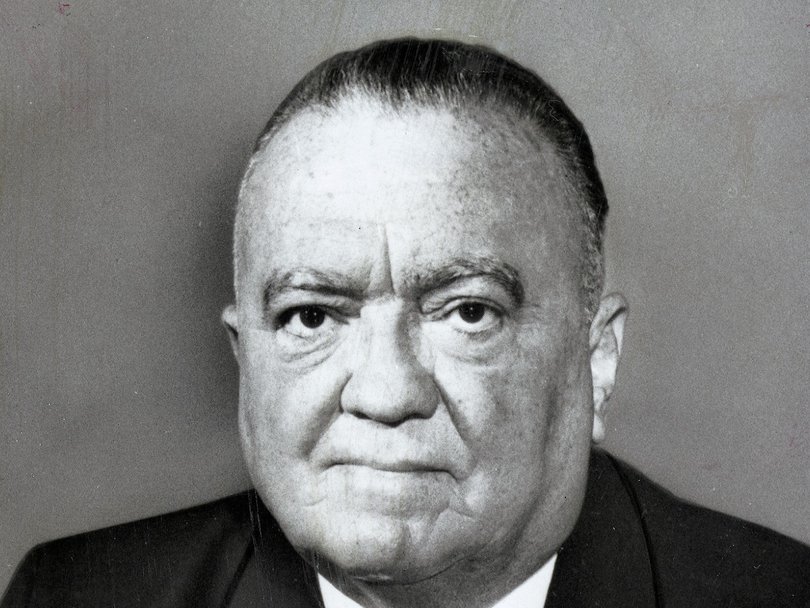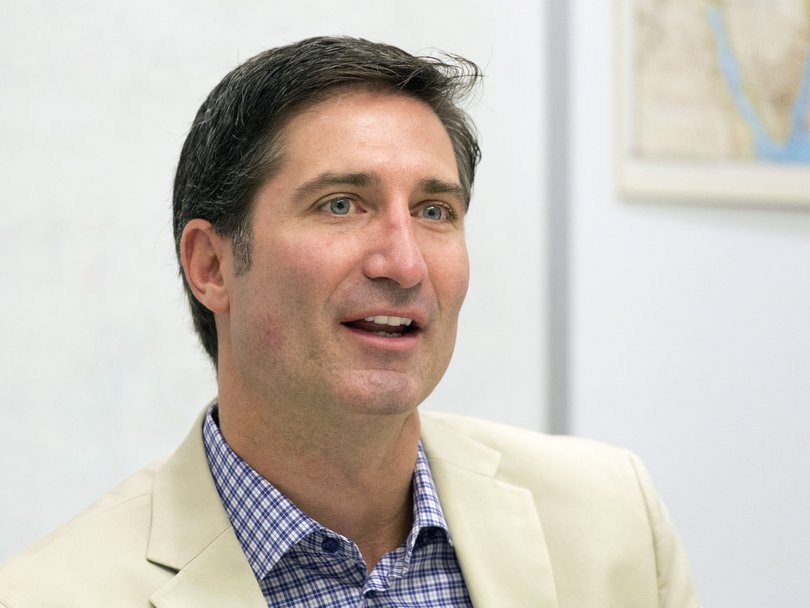THE ECONOMIST: What Hoover’s FBI reveals about minions, mistaken orders and the risks of blind obedience
THE ECONOMIST: You might call it ouija-board management: messages are being received even if none have actually been sent.

J. Edgar Hoover, the first director of the Federal Bureau of Investigation, was a darkly authoritarian figure. During his 48-year reign at the FBI and its forerunner, he exercised personal oversight over decisions large and small, from wiretaps to dress codes. Control bred unthinking obedience.
When Hoover once scrawled “Watch the borders” on one of the memoranda that passed across his desk, agents were reportedly dispatched to America’s frontiers with Mexico and Canada.
It turned out that he was in fact concerned about the width of the margins on the document.
Sign up to The Nightly's newsletters.
Get the first look at the digital newspaper, curated daily stories and breaking headlines delivered to your inbox.
By continuing you agree to our Terms and Privacy Policy.His underlings’ behaviour may have been rational. Hierarchies generally imply that orders are given and taken.
And Hoover was a particular kind of boss: he bore grudges, had a temper and once fired someone for playing with a yo-yo. It probably made sense for minions to respond to his bidding rather than ask awkward questions like “Which borders?” Executives today tend to practise a different kind of leadership.
But even for collaboratively minded managers soaked in the doctrine of psychological safety, this story contains an important lesson.

There is loads of research on authority bias — the tendency for people to suspend their own judgement in the presence of power.
Stanley Milgram’s classic experiment, when participants complied with instructions to administer (simulated) electric shocks of increasing severity to others, is the best known. But an unappreciated aspect of this phenomenon is that power is often exercised unwittingly as well as intentionally.
An ambiguous instruction like Hoover’s can cause chaos, as employees try to interpret what the boss meant. A casual remark by the most well-meaning manager has the potential to send subordinates haring off in unintended directions. A furrowed brow can ruin days.
Even in their absence, bosses exercise influence. People spend enormous amounts of time trying to intuit what the higher-ups want. You might call it ouija-board management: messages are being received even if none have actually been sent.
Some bosses and organisations are more aware than others of the impact that a grand title can have. President John F. Kennedy told his advisers during the Cuban missile crisis in 1962 that he would not be part of the team day to day because his presence in the room meant that they were less prepared to challenge each other.
When Pixar, an animation studio, road-tests new films internally, it convenes a brains trust of people, most of them very experienced, whose job is to give feedback to the director. The company is explicit that this group has no authority of its own and that it is up to the director whether to take their advice.
Being upfront about power is better than wishing it away. If you are the boss and say things like “You don’t have to listen to me on this,” or “It’s your decision but if I were you,” you may think you are giving people licence to make their own choices. You’re not really. If you don’t care about something, it’s better to say nothing at all than pretend that your opinions do not have extra weight.

Starbucks has long had the practice of not capitalising job titles as a way of signalling that all employees are valued. That’s all very nice. But Brian Niccol, the CEO, is still the one who decides to close stores and lay off workers, as he did in September.
Being clear about why you are trying to do something is a good way for a boss to be there in spirit. Liz Reid, who oversees search at Google, says that without a sense of the reason for a particular strategy, there is more risk that people will just run on rails. “It’s like, ‘Oh, well, Liz said such and such. So now we’re going to go do it ad infinitum.’” C
larity about a goal at least rigs the ouija board in constructive ways. That’s because employees have a decent framework for evaluating new ideas or responding to new information.
Bosses are defined by the power they exercise. That power has great value in co-ordinating teams, resolving conflicts and galvanising efforts. But it is also constantly distorting behaviour. When every word a leader says can ripple through an organisation, remember Hoover and watch the orders.
Originally published as How bosses unwittingly exert power
